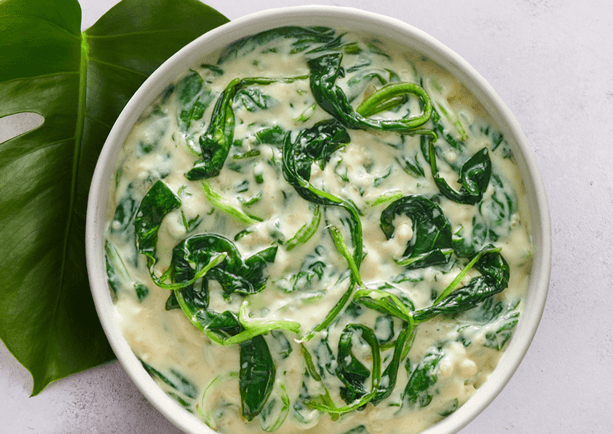15-Day Blood Sugar Control Meal Plan

Maintaining optimal blood sugar levels is crucial for overall health, particularly for individuals with diabetes. Consistent blood sugar control helps prevent complications such as heart disease, kidney damage, and nerve issues while improving energy levels and mood. Achieving this balance requires a comprehensive approach, which includes a well-structured blood sugar control meal plan.
A blood sugar control meal plan is designed to help manage glucose levels through balanced nutrition. This meal plan ensures that blood sugar levels remain stable throughout the day by incorporating a mix of proteins, healthy fats, and low-glycemic carbohydrates. It also emphasises regular meal times and portion control, further aiding in the effective management of diabetes. This 15-day blood sugar control meal plan provides a variety of delicious and nutrient-rich meals that make maintaining stable glucose levels both achievable and enjoyable.
What is Blood Sugar?
Blood sugar, or glucose, is our bodies' primary energy source. It comes from the food we eat, particularly carbohydrates, broken down into glucose during digestion. For individuals with diabetes, maintaining stable blood sugar levels is vital for overall health and well-being. Fluctuations in blood sugar can lead to a range of health issues, from short-term symptoms like fatigue and irritability to long-term complications such as cardiovascular disease and nerve damage.
A blood sugar control meal plan is pivotal in managing these fluctuations. This plan helps prevent spikes and drops in blood sugar levels by carefully selecting and balancing meals and snacks. Key components of such a meal plan include:
Balanced Meals: Each meal should include protein, healthy fats, and low-glycemic carbohydrates. This balance slows the absorption of sugar into the bloodstream, helping to maintain stable glucose levels.
Regular Meal Times: Eating at consistent times each day prevents large gaps between meals, which can lead to blood sugar dips.
Portion Control: Managing portion sizes ensures you're consuming the right amount of nutrients without overeating, which can cause blood sugar spikes.
Blood Sugar Control Meal Plan
Day 1-5: Kickstarting Your Journey
Day 1
- Breakfast: Greek yogurt with berries and a sprinkle of nuts.
- Lunch: Grilled chicken salad with mixed greens, cherry tomatoes, and a light vinaigrette.
- Snack: Sliced cucumbers with hummus.
- Dinner: Baked salmon with steamed broccoli and quinoa.
Day 2:
- Breakfast: Scrambled eggs with spinach and whole grain toast.
- Lunch: Lentil soup with a side salad.
- Snack: Apple slices with almond butter.
- Dinner: Grilled tofu with stir-fried vegetables.
Day 3:
- Breakfast: Oatmeal topped with chia seeds and strawberries.
- Lunch: Turkey and avocado wrap with whole grain tortilla.
- Snack: Handful of almonds.
- Dinner: Baked chicken breast with roasted vegetables.
Day 4:
- Breakfast: Smoothie with spinach, banana, and plant-based protein powder.
- Lunch: Chickpea and vegetable stir-fry.
- Snack: Greek yogurt with a drizzle of honey.
- Dinner: Grilled fish tacos with cabbage slaw.
Day 5:
- Breakfast: Whole grain toast with avocado and a poached egg.
- Lunch: Quinoa salad with black beans, corn, and bell peppers.
- Snack: Popcorn (air-popped) with a little butter.
- Dinner: Zucchini noodles with tomato basil sauce and grilled shrimp.
Day 6-10: Building Momentum
Day 6:
- Breakfast: Smoothie bowl with mixed berries and granola.
- Lunch: Spinach and feta stuffed chicken breast with brown rice.
- Snack: Sliced bell peppers with guacamole.
- Dinner: Grilled salmon with a side of asparagus.
Day 7:
- Breakfast: Greek yogurt with sliced peaches and flax seeds.
- Lunch: Grilled vegetable panini on whole grain bread.
- Snack: Trail mix (portion-controlled).
- Dinner: Turkey meatballs with zucchini noodles.
Day 8:
- Breakfast: Whole grain pancakes with a side of fresh fruit.
- Lunch: Baked sweet potato stuffed with black beans and salsa.
- Snack: Cottage cheese with pineapple chunks.
- Dinner: Stir-fried chicken with broccoli and brown rice.
Day 9:
- Breakfast: Scrambled tofu with mixed vegetables.
- Lunch: Mediterranean salad with chickpeas, olives, and feta.
- Snack: Hard-boiled eggs.
- Dinner: Baked cod with a side of roasted Brussels sprouts.
Day 10:
- Breakfast: Avocado toast with a side of mixed berries.
- Lunch: Tuna salad with mixed greens and olive oil dressing.
- Snack: Celery sticks with peanut butter.
- Dinner: Lentil and vegetable curry.
Day 11-15: Finishing Strong
Day 11:
- Breakfast: Chia pudding with almond milk and fresh berries.
- Lunch: Grilled chicken Caesar salad with a light dressing.
- Snack: Sliced tomatoes with mozzarella and basil.
- Dinner: Baked salmon with quinoa and roasted vegetables.
Day 12:
- Breakfast: Smoothie with spinach, mango, and Greek yogurt.
- Lunch: Veggie burger on a whole grain bun with a side salad.
- Snack: Apple slices with peanut butter.
- Dinner: Grilled shrimp with a side of steamed asparagus.
Day 13:
- Breakfast: Whole grain cereal with almond milk and a banana.
- Lunch: Caprese salad with tomatoes, mozzarella, and basil.
- Snack: Handful of walnuts.
- Dinner: Baked chicken with a side of sautéed spinach.
Day 14:
- Breakfast: Greek yogurt with honey and mixed nuts.
- Lunch: Quinoa bowl with roasted vegetables and chickpeas.
- Snack: Carrot sticks with hummus.
- Dinner: Grilled steak with a side of green beans.
Day 15:
- Breakfast: Smoothie bowl with spinach, pineapple, and chia seeds.
- Lunch: Baked salmon with a side of mixed greens.
- Snack: Cottage cheese with sliced strawberries.
- Dinner: Grilled vegetable kebabs with a side of brown rice.
What are the Tips for Success with Your Blood Sugar Control Meal Plan?
Embarking on a blood sugar control meal plan can seem daunting, but you can achieve great success with the right strategies. Here are some tips to help you get the most out of your meal plan:
1. Plan Your Meals in Advance
Planning your meals ensures you have the necessary ingredients and can help you avoid unhealthy choices. Set aside time each week to map out your meals and snacks, focusing on a balance of proteins, healthy fats, and low-glycemic carbohydrates.
2. Stay Consistent with Meal Timing
Eating at regular intervals helps maintain stable blood sugar levels. Aim to have three main meals and two snacks each day, spaced out evenly. Consistency in meal timing prevents large gaps between meals that can lead to blood sugar dips.
3. Portion Control is Key
Monitoring portion sizes is crucial in a blood sugar control meal plan. Use measuring cups, a food scale, or visual cues to prevent overeating. Balanced portions help prevent blood sugar spikes and contribute to overall weight management.
Conclusion
A well-structured blood sugar control meal plan is crucial for managing diabetes effectively. This 15-day plan incorporates balanced meals and snacks that help regulate blood sugar levels and ensure a variety of flavours and nutrients. Consistency is key; always consult with a healthcare professional or dietitian to tailor the meal plan to your specific needs.
FAQs
1. How can this meal plan help me manage my blood sugar levels?
This meal plan includes balanced meals with the right mix of proteins, healthy fats, and low-glycemic carbohydrates to maintain stable blood sugar levels. It emphasises portion control and regular meal timings. Consistent, nutrient-rich meals help prevent blood sugar spikes and dips.
2. What types of foods are included in a blood sugar control meal plan?
The plan includes lean proteins, healthy fats, and low-glycemic carbohydrates like whole grains, vegetables, and legumes. Snacks feature nutrient-dense options such as nuts, seeds, and fresh fruits. Processed foods and high-sugar items are minimised.
3. Are there specific meal timings or intervals I should follow on this plan?
Yes, eating at regular intervals is crucial. Aim for three main meals and two snacks each day, spaced evenly. Consistent meal timings help maintain steady blood sugar levels.
4. Can I customise this meal plan based on my dietary preferences or restrictions?
Absolutely, this meal plan can be tailored to fit your dietary needs. You can adjust recipes to accommodate preferences, allergies, or specific health conditions. Consulting with a dietitian can help you personalise the plan effectively.
5. Will this meal plan help me lose weight and control my blood sugar levels?
Yes, this meal plan can aid in weight loss by focusing on balanced, portion-controlled meals. It encourages nutrient-dense foods and healthy eating habits. Effective blood sugar management also supports overall weight management goals.
Trending Searches:
Meal Plan Dubai | Affordable Meal Plans Abu Dhabi | Meal Plan Ajman | Meal Plan Al In | Meal Plan Sharjah | Meal Plan Subscription
Related Blogs
The Burnout Diet
Jan 30, 2026 | 8The mental load of “What should I eat today?"
Jan 22, 2026 | 8The real glow-up starts with your gut health
Jan 14, 2026 | 8Healthy food that doesn’t taste like “Diet Food”
Jan 17, 2026 | 8Why do most people in the UAE get their calories wrong
Dec 8, 2025 | 6DASH Diet Meal Plan
Nov 11, 2025 | 8Fatty Liver Meal Plan
Oct 31, 2025 | 8Pregnancy Diet Meal Plan
Oct 27, 2025 | 82000 Calorie Meal Plan
Oct 1, 2025 | 8Intermittent Fasting Diet Plan
Sep 5, 2025 | 8






